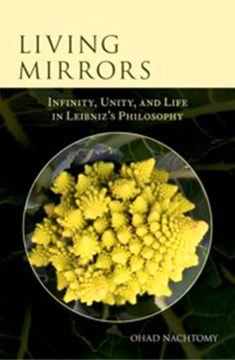Justin E. H. Smith in Notre Dame Philosophical Reviews:
 There are several billion microorganisms in a typical teaspoon of soil: not an infinite number, but more than any finite mind could hope to count one by one. Leibniz did not know the precise nature of soil microbes, nor did he have any empirical proof of their existence, but he was convinced that they, or something like them, must exist, and this for deep philosophical reasons. Whatever there is in the world must be underlain by real soul-like unities or centers of action and perception, analogous to whatever it is we are referring to when we speak of “me”. But any such center of action must be outfitted with a body, and this body must be such that no amount of decomposition or removal of parts could ever take the being in question out of existence. Thus there is nothing in the physical world but what Leibniz called “organic bodies” or “natural machines”, that is to say infinitely complex mechanical bodies. Considered together with the active, perceiving unities that underlie them, these organic bodies are best described as “corporeal substances”, of which animals and plants are the varieties we here on the surface of the earth know best. Everything is alive, in short.
There are several billion microorganisms in a typical teaspoon of soil: not an infinite number, but more than any finite mind could hope to count one by one. Leibniz did not know the precise nature of soil microbes, nor did he have any empirical proof of their existence, but he was convinced that they, or something like them, must exist, and this for deep philosophical reasons. Whatever there is in the world must be underlain by real soul-like unities or centers of action and perception, analogous to whatever it is we are referring to when we speak of “me”. But any such center of action must be outfitted with a body, and this body must be such that no amount of decomposition or removal of parts could ever take the being in question out of existence. Thus there is nothing in the physical world but what Leibniz called “organic bodies” or “natural machines”, that is to say infinitely complex mechanical bodies. Considered together with the active, perceiving unities that underlie them, these organic bodies are best described as “corporeal substances”, of which animals and plants are the varieties we here on the surface of the earth know best. Everything is alive, in short.
Leibniz got quite a bit right, though he was wrong about some of the details.
More here.
